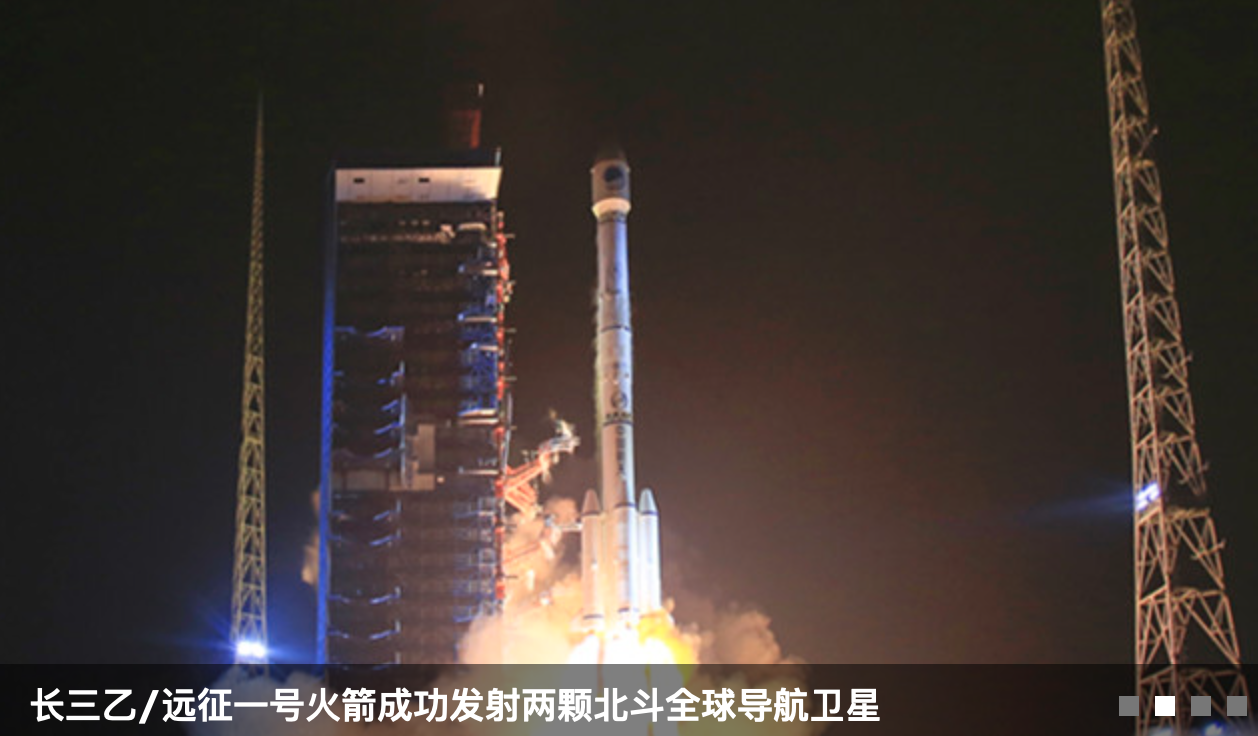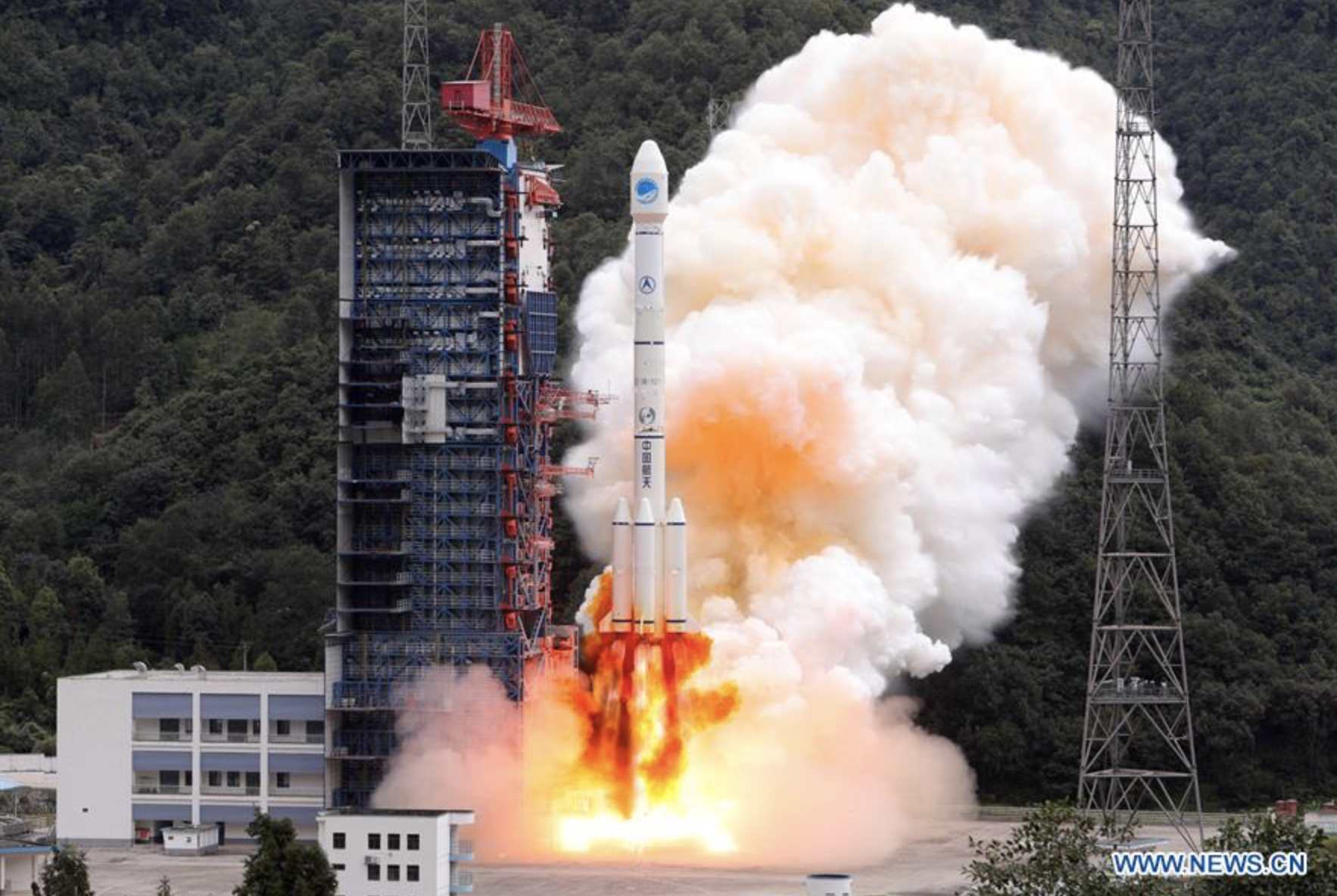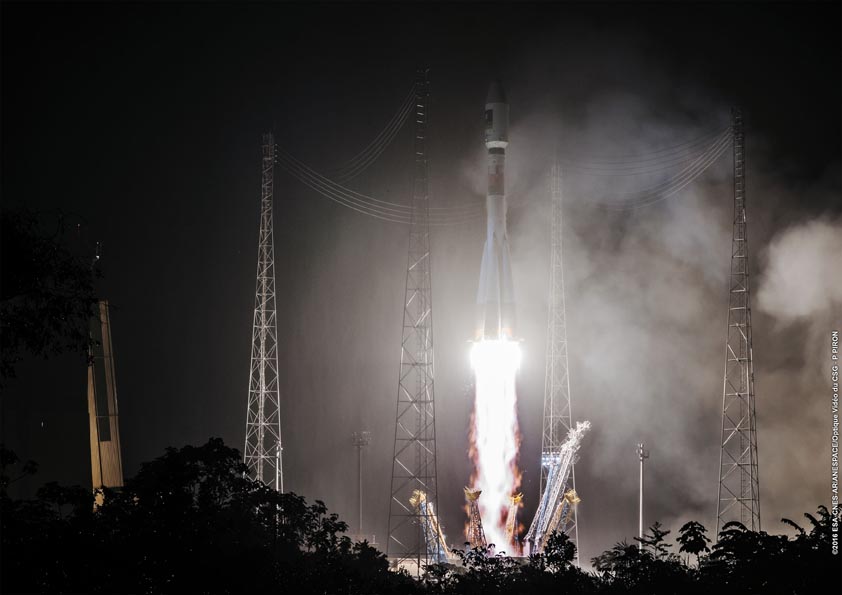China successfully launched twin BeiDou-3 navigation satellites early Monday morning, marking a major milestone for the array of positioning satellites known as the BeiDou Navigation Satellite System, as reported by the Global Times of China.
Launched from the Xichang Satellite Launch Center in Xichang, Southwest China’s Sichuan Province, the satellites are 42nd and 43rd in the BeiDou constellation. The successful launch marks that the basic BDS-3 constellation has successfully been deployed. Networking of the constellation and assessment on its performances will be carried out in the near future.
The twin Medium Earth Orbit (MEO) satellites entered the designated orbit about three hours after their launch.
“The basic BDS-3 constellation has been completed, marking a milestone for the Chinese BeiDou to go truly global,” Yang Changfeng, chief architect of BeiDou, said at a press event on Sunday in Xichang.
“BDS will reach worldwide coverage after the Monday launch with an enhanced accuracy of between 2.5 meters and five meters, and it will provide service that is twice as good as the previous BDS-2, without even being noticed by the users,” Yang said.
Related Reading: BeiDou’s Progress Continues with China’s Latest Launch of Twin BeiDou-3 Satellites
Since November 5, 2017 there have been 19 launches of BDS-3 satellites, with the shortest intervals between launches being only 17 days, said Yang, noting the intensive launch efforts that have taken place in the past 12 months. Such an intensive launch schedule is unprecedented in China’s space history, Wang Ping, chief designer of BDS-3 family of satellites, told the Global Times. To achieve the goal, Chinese engineers and scientists have been planning and working accordingly round the clock since 2015, and broken the old tradition of “producing one and examining one,” as the BDS-3 satellites and their components are in fact produced through a mass manufacturing but in a more scientific mode, Wang noted. The Monday BDS-3 mission was the Xichang Satellite Launch Center’s 15th of the year, and the center is expected to perform two more by the end of the year, Wu Chengde, deputy director of the political department at the launch center, according to published reports. The previous number of launches from the center was nine in one year, said Wu.
Plans are for the BeiDou-3 constellation to be put into operation before the end of this year, to provide basic navigation services to countries and regions participating the Belt and Road initiative, which will be a key milestone for BDS in expanding service areas from regional to global. Yang also said that China is planning to launch 11 additional BDS-3 satellites including six MEO satellites, three Inclined Geosynchronous Orbit (IGO) satellites and two geostationary satellites, over the next two years.






